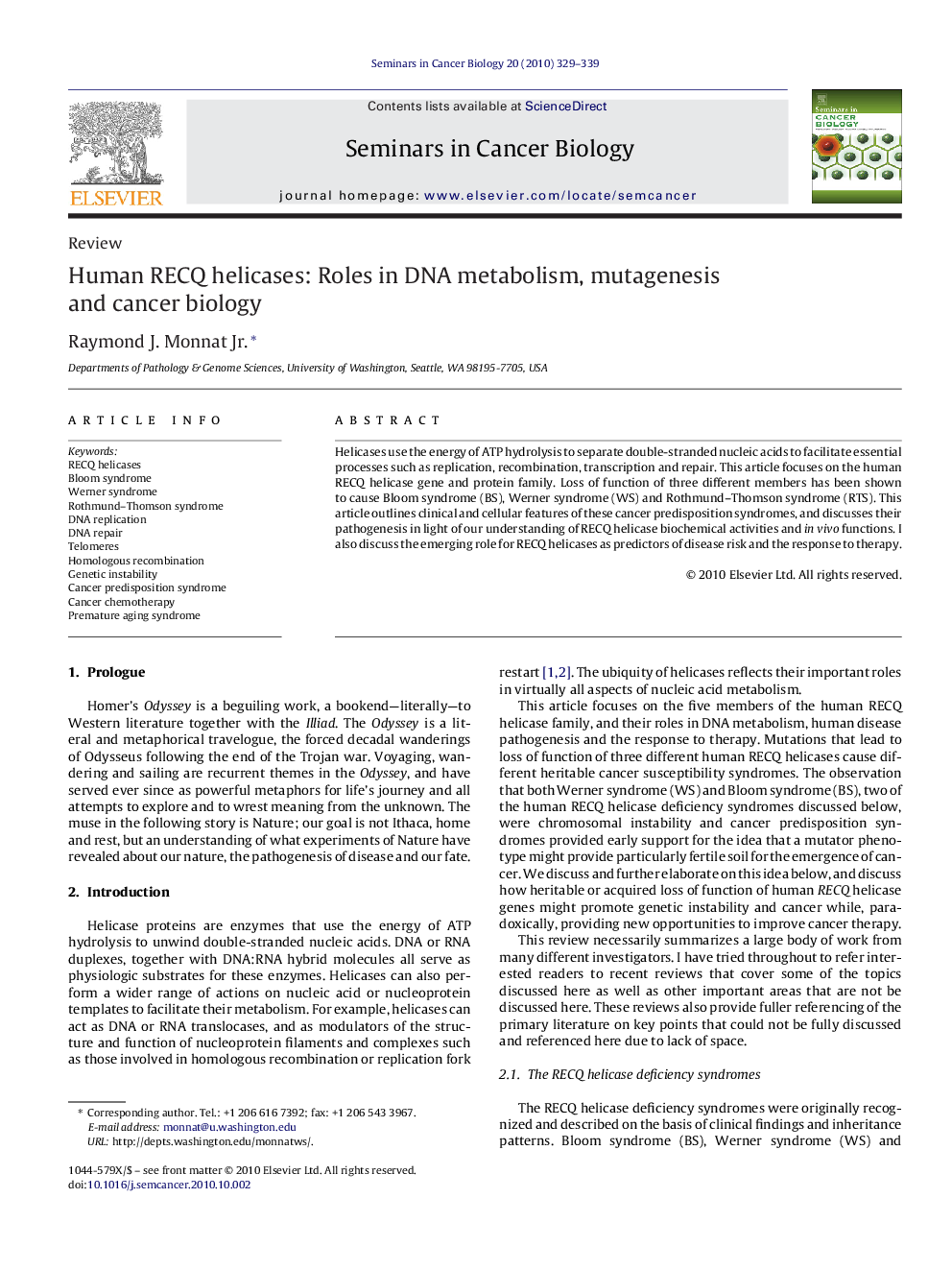| Article ID | Journal | Published Year | Pages | File Type |
|---|---|---|---|---|
| 2024142 | Seminars in Cancer Biology | 2010 | 11 Pages |
Abstract
Helicases use the energy of ATP hydrolysis to separate double-stranded nucleic acids to facilitate essential processes such as replication, recombination, transcription and repair. This article focuses on the human RECQ helicase gene and protein family. Loss of function of three different members has been shown to cause Bloom syndrome (BS), Werner syndrome (WS) and Rothmund–Thomson syndrome (RTS). This article outlines clinical and cellular features of these cancer predisposition syndromes, and discusses their pathogenesis in light of our understanding of RECQ helicase biochemical activities and in vivo functions. I also discuss the emerging role for RECQ helicases as predictors of disease risk and the response to therapy.
Keywords
Related Topics
Life Sciences
Biochemistry, Genetics and Molecular Biology
Biochemistry
Authors
Raymond J. Monnat Jr.,
